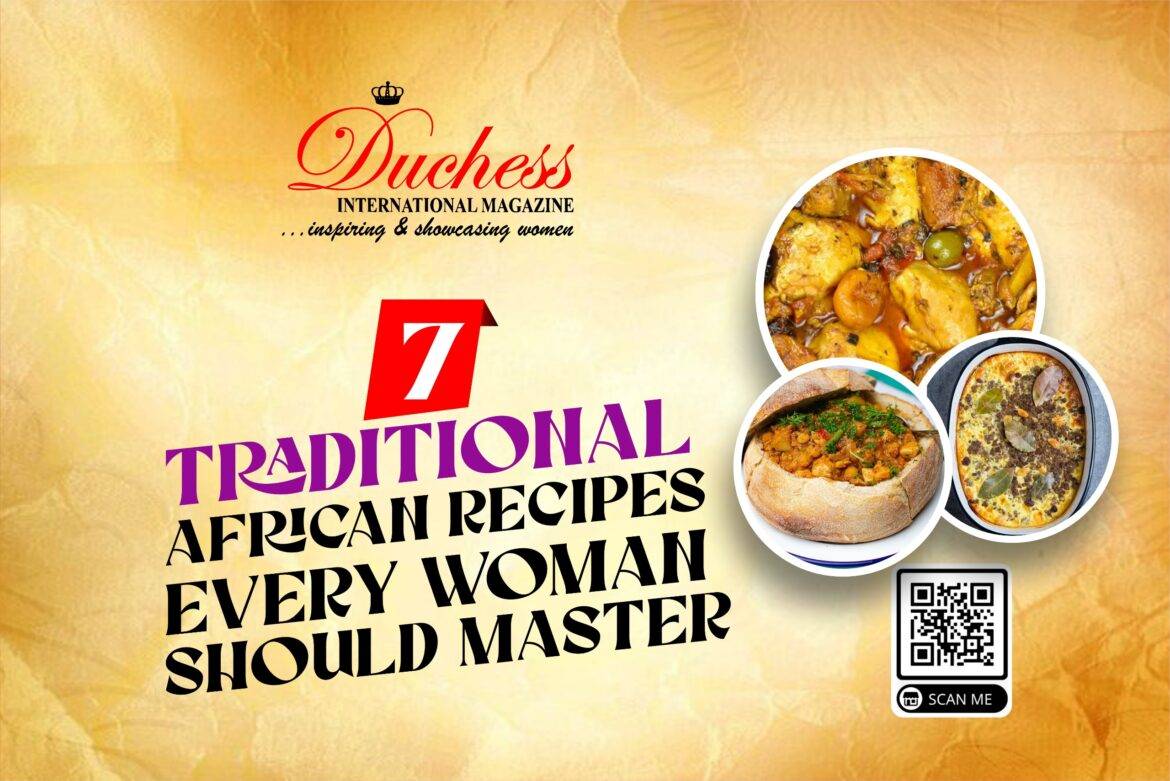From the spicy stews of West Africa to the aromatic curries of East Africa, African recipes are deeply rooted in tradition and history. African cuisine is a rich tapestry of diverse flavors and cooking techniques that vary across the continent’s 54 countries. African gastronomy holds deep historical significance, reflecting the continent’s trade routes, colonial influences, and indigenous culinary practices that have shaped its food culture over centuries.
Traditional African recipes are more than just meals – they are a reflection of cultural identities, histories, and values that deserve to be cherished and passed down through generations. Food plays a central role in African social gatherings, from weddings to festivals, where traditional recipes serve as a way to connect, celebrate, and honor community ties.
Common Spices and Seasonings in African Cuisine
From fiery pepper blends to aromatic spices like cloves and cinnamon, African cuisine is known for its vibrant mix of flavors that elevate dishes to new heights of deliciousness.
Staple foods like cassava, plantains, and yams, along with a colorful array of fresh produce like okra and tomatoes, form the foundation of many traditional African recipes, showcasing the continent’s rich agricultural bounty.
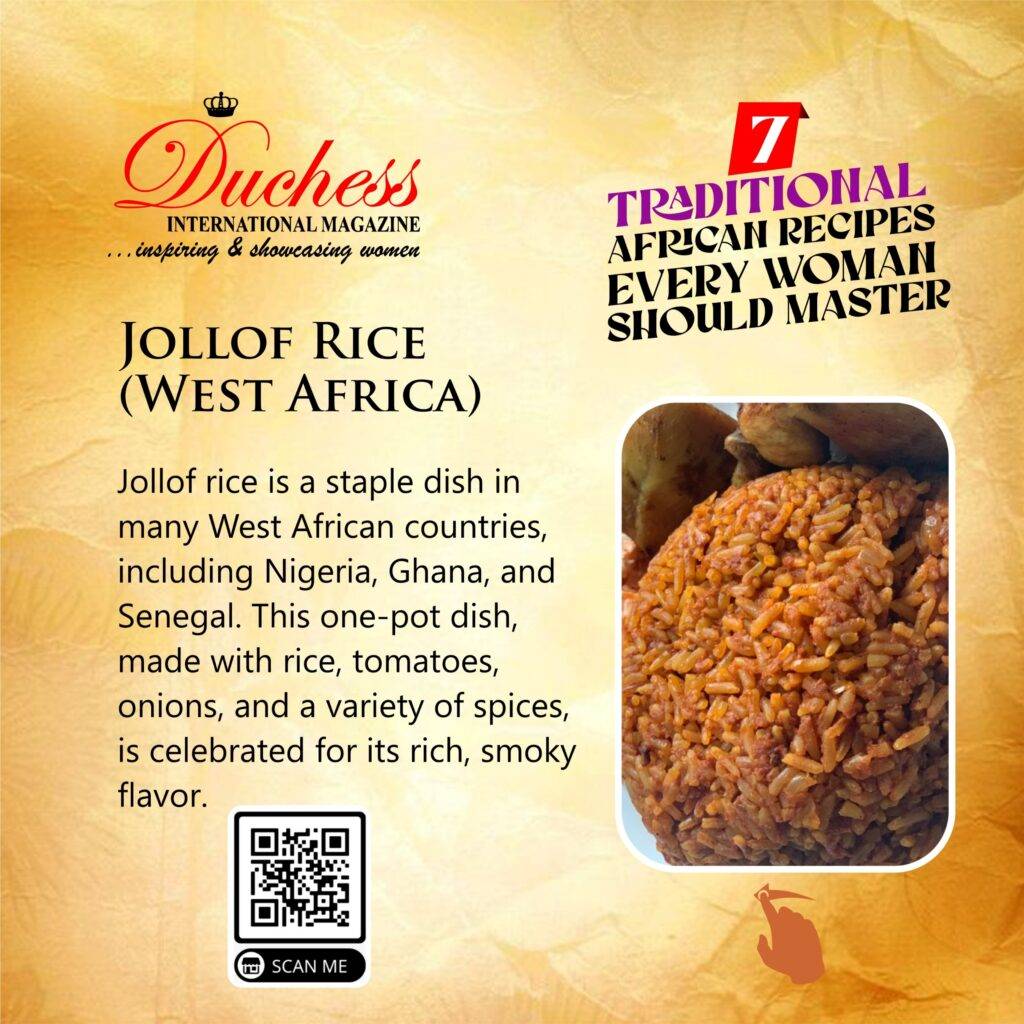
Jollof Rice (West Africa)
Jollof rice is a staple dish in many West African countries, including Nigeria, Ghana, and Senegal. This one-pot dish, made with rice, tomatoes, onions, and a variety of spices, is celebrated for its rich, smoky flavor. The secret to perfect Jollof rice lies in the long, slow cooking process that allows the flavors to meld together beautifully.
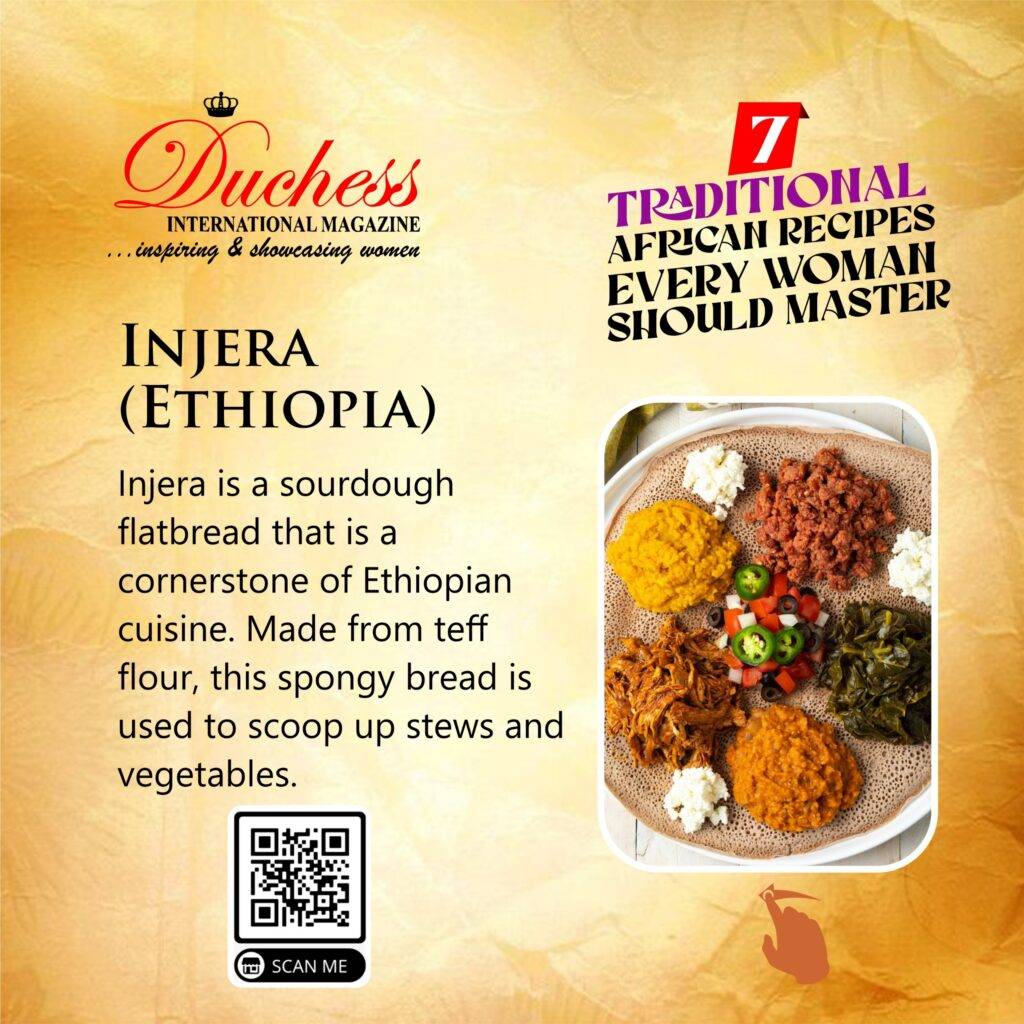
Injera (Ethiopia)
Injera is a sourdough flatbread that is a cornerstone of Ethiopian cuisine. Made from teff flour, this spongy bread is used to scoop up stews and vegetables. Its unique texture and slightly tangy taste make it an excellent accompaniment to dishes like Doro Wat, a spicy chicken stew.
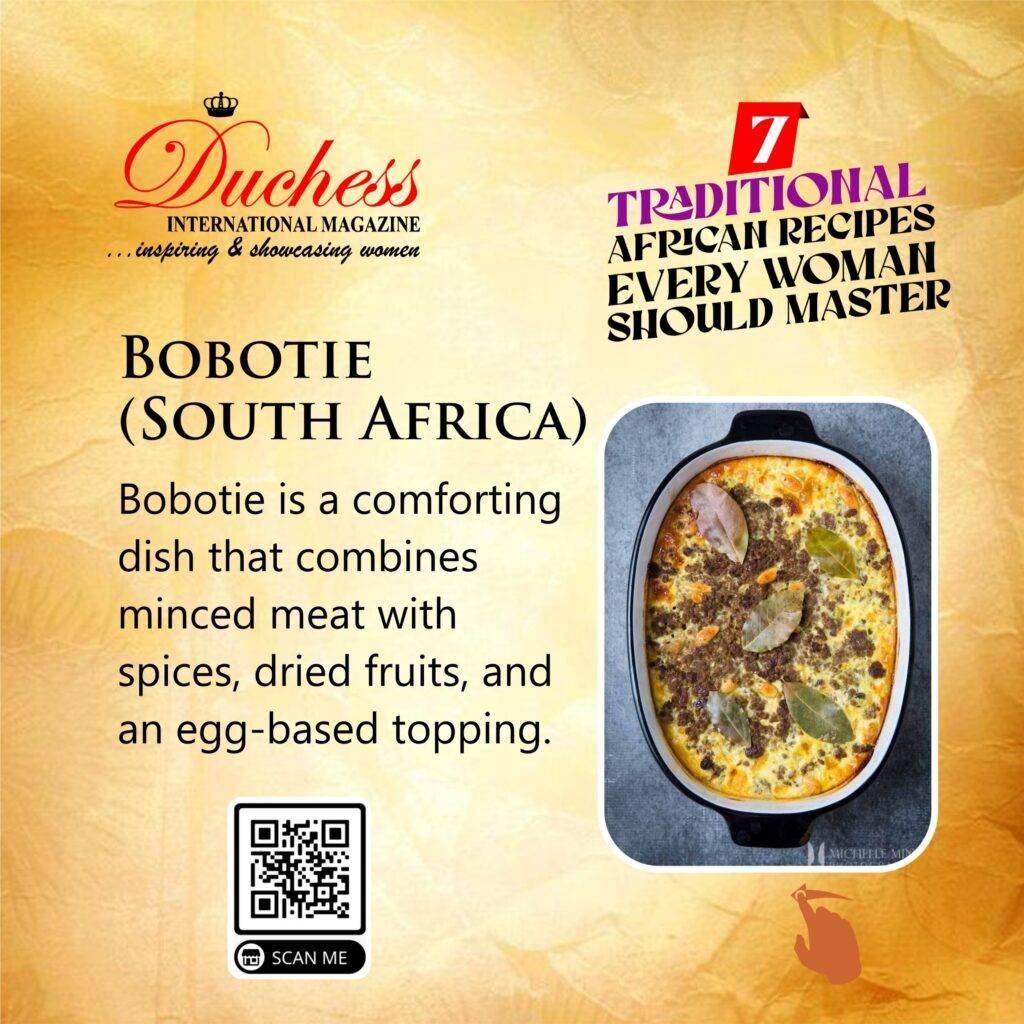
Bobotie (South Africa)
Bobotie is a comforting dish that combines minced meat with spices, dried fruits, and an egg-based topping. This South African classic is believed to have been influenced by both Dutch and Malaysian cuisine. It’s a flavorful and aromatic dish that perfectly balances sweet and savory notes.
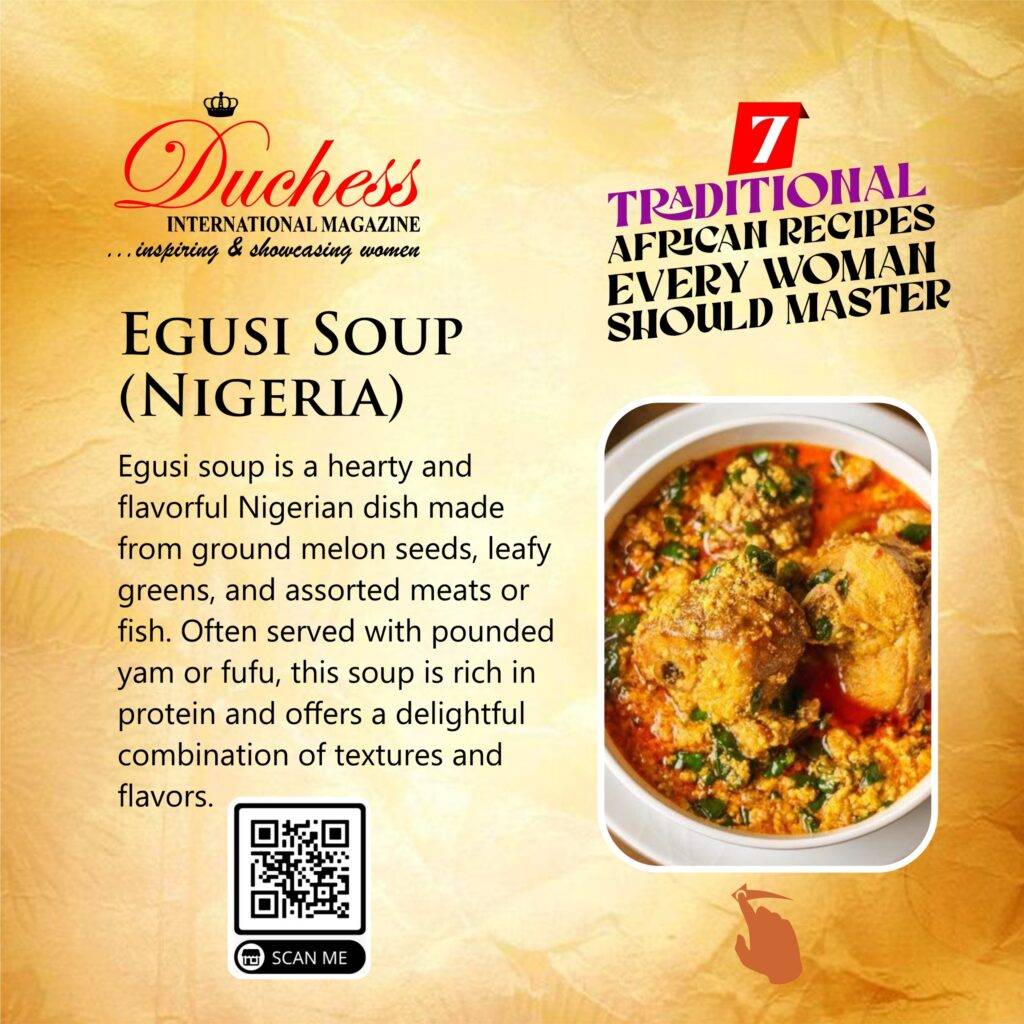
Egusi Soup (Nigeria)
Egusi soup is a hearty and flavorful Nigerian dish made from ground melon seeds, leafy greens, and assorted meats or fish. Often served with pounded yam or fufu, this soup is rich in protein and offers a delightful combination of textures and flavors. It’s a must-master for any lover of Nigerian cuisine.
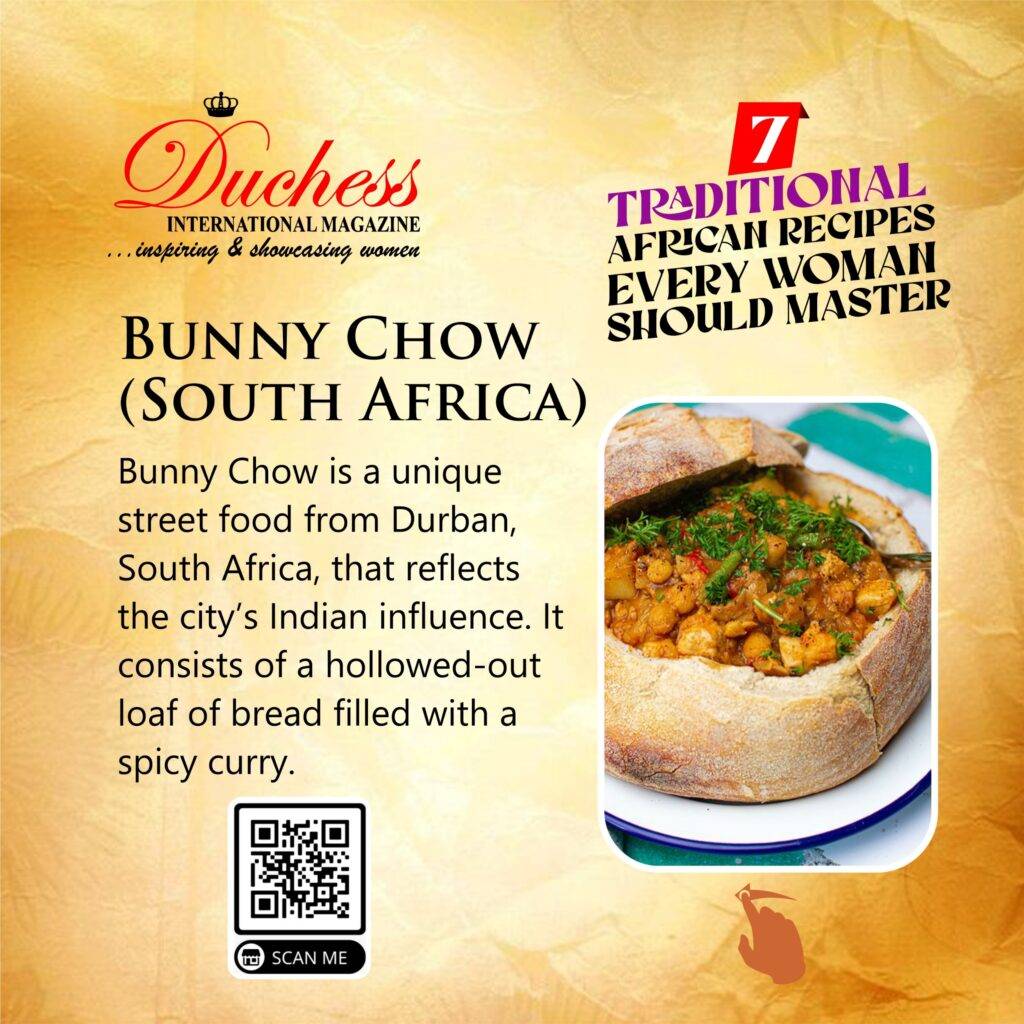
Bunny Chow (South Africa)
Bunny Chow is a unique street food from Durban, South Africa, that reflects the city’s Indian influence. It consists of a hollowed-out loaf of bread filled with a spicy curry. Typically, it’s made with chicken, lamb, or beans, and it’s a delicious, filling dish that showcases South Africa’s diverse culinary heritage.
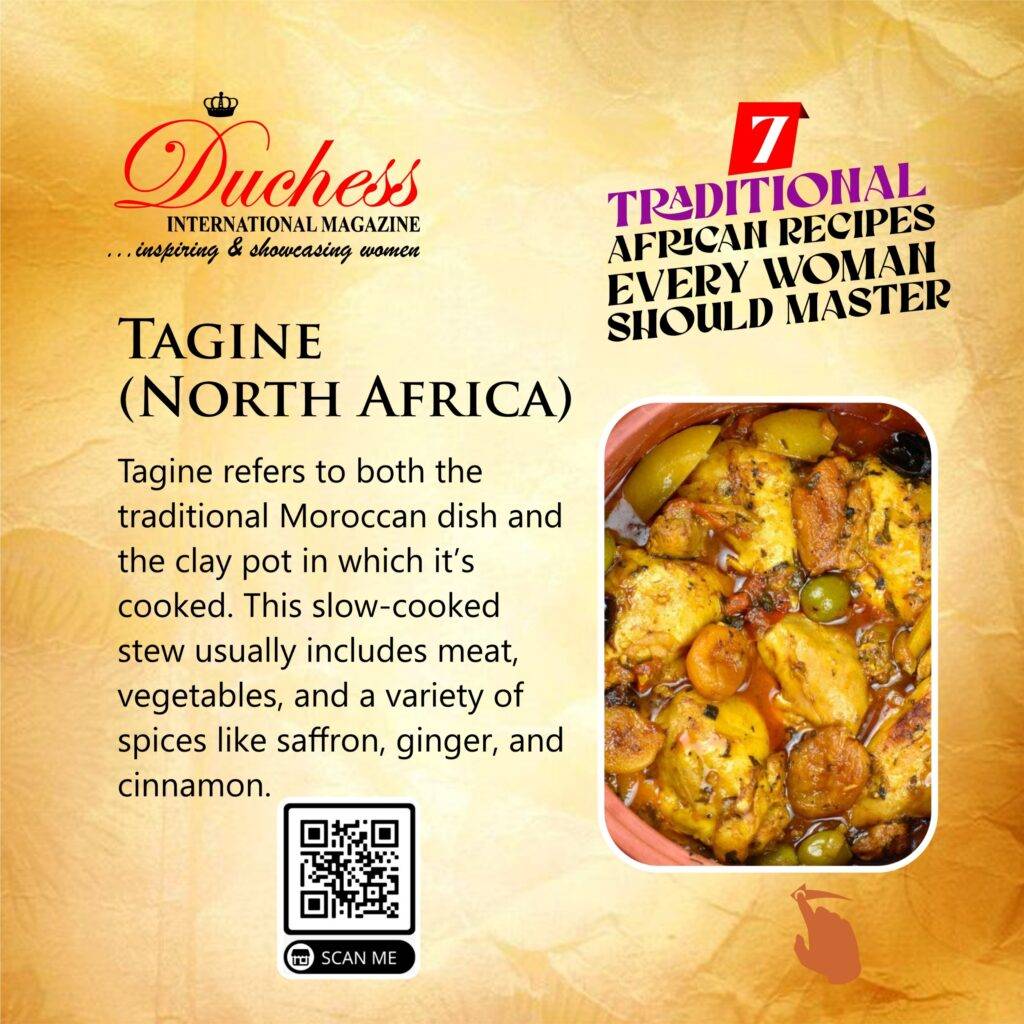
Tagine (North Africa)
Tagine refers to both the traditional Moroccan dish and the clay pot in which it’s cooked. This slow-cooked stew usually includes meat, vegetables, and a variety of spices like saffron, ginger, and cinnamon. The unique shape of the tagine pot allows the dish to steam gently, resulting in tender, flavorful meals.
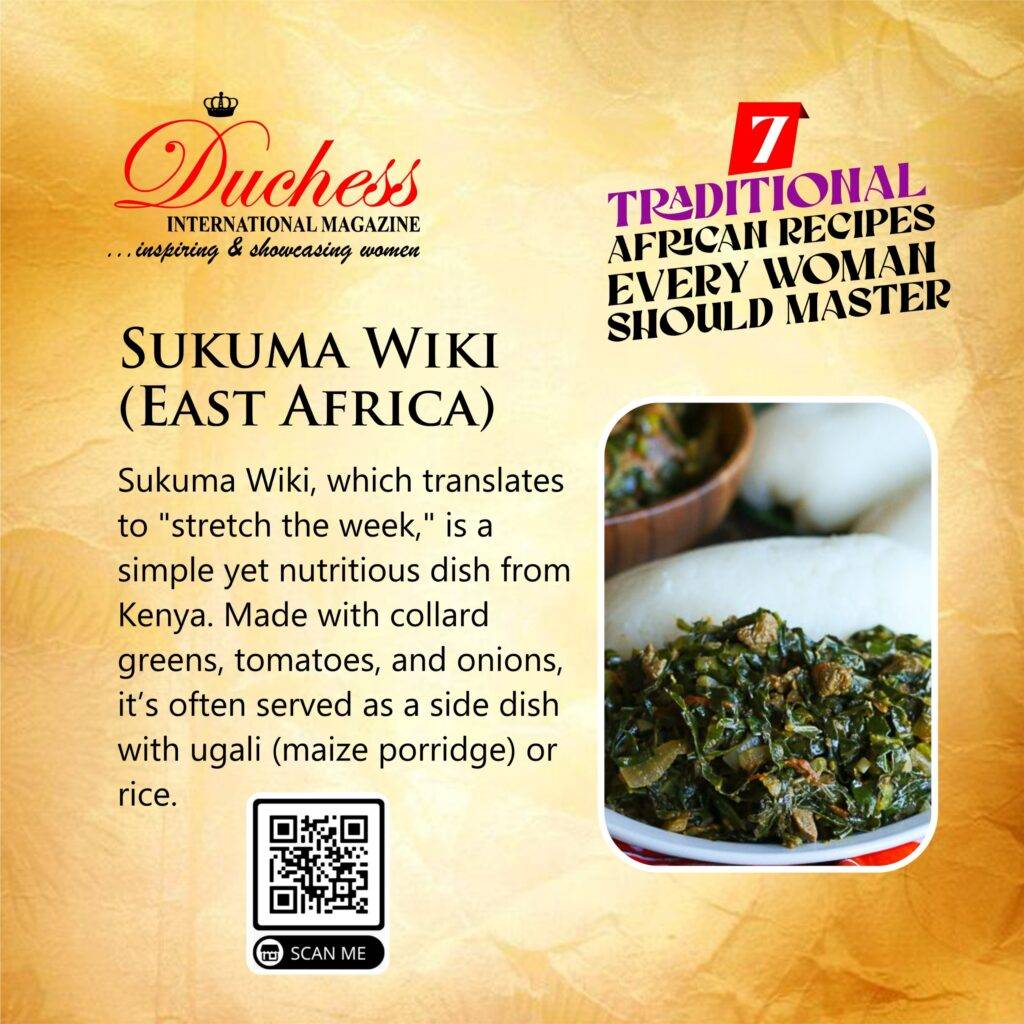
Sukuma Wiki (East Africa)
Sukuma Wiki, which translates to “stretch the week,” is a simple yet nutritious dish from Kenya. Made with collard greens, tomatoes, and onions, it’s often served as a side dish with ugali (maize porridge) or rice. This easy-to-make dish is a staple in many East African households, known for its health benefits and versatility.
Encouraging Cultural Exchange Through Cooking
By mastering traditional African recipes like Egusi soup, Bobotie, and Pilau, individuals can not only expand their culinary skills but also engage in cultural exchange. Sharing these dishes with friends and family fosters a deeper appreciation for African culinary traditions and promotes cross-cultural understanding through the joy of food.
Promoting the Richness of African Cuisine Globally
African cuisine is a treasure trove of flavors, aromas, and ingredients waiting to be discovered by food enthusiasts worldwide. As more people embrace and celebrate African culinary traditions, they contribute to the global recognition of the diverse and vibrant food culture present on the continent.
Let’s continue to spread the richness of African cuisine far and wide, one delicious dish at a time.In mastering these traditional African recipes, women not only embrace the art of cooking but also honor the legacies and stories woven into each dish. By sharing these culinary treasures with family and friends, they continue the legacy of preserving and celebrating the vibrant flavors and cultural significance of African cuisine.


